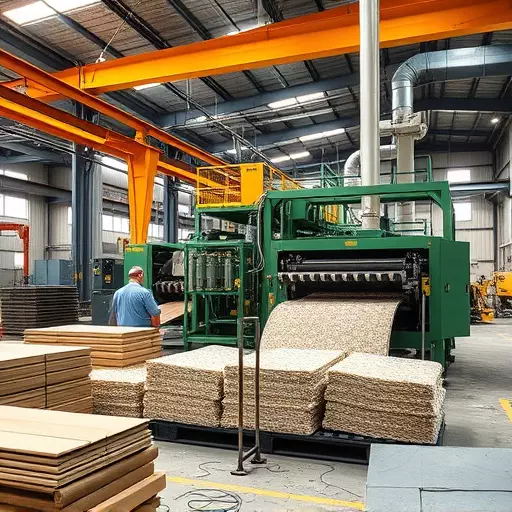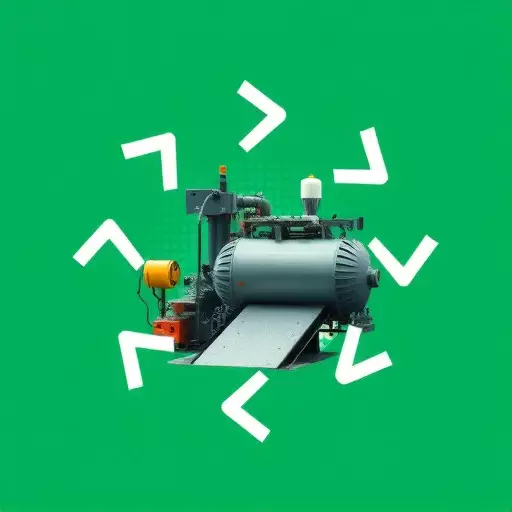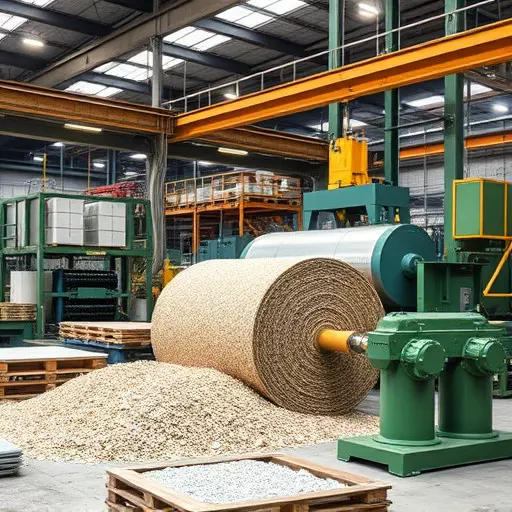In today's digital era, embracing eco-friendly manufacturing techniques like sustainable material processing in Toledo is crucial. Traditional methods harm the environment, prompting industries to adopt low-emission, circular economy practices that cut waste and resource use, saving costs and enhancing brand reputation. Toledo's initiatives transform industrial practices, promoting material reuse, recycling, and reducing emissions, benefiting both the planet and establishing it as a green manufacturing leader. Eco-friendly manufacturing leverages innovative techniques like upcycling and biodegradable plastics to minimize environmental impact, aiming to reduce carbon footprints globally. Implementing these strategies is vital for businesses seeking to thrive in the eco-conscious market while offering key advantages like lower energy consumption, reduced greenhouse gas emissions, and high-quality, environmentally friendly products.
In an era where environmental sustainability is paramount, embracing low-emission production methods is not just a choice but a necessity. This article delves into the transformative power of sustainable material processing in Toledo and its potential to shape a greener future. We explore eco-friendly manufacturing techniques, highlighting their benefits for the circular economy. Furthermore, practical strategies are offered for businesses aiming to adopt low-emission practices, ensuring a comprehensive guide for those seeking to navigate this vital shift towards sustainable manufacturing.
- Understanding Low-Emission Production Methods: A Shift Towards Sustainable Manufacturing
- The Role of Sustainable Material Processing in Toledo and Beyond
- Eco-Friendly Manufacturing: Techniques and Benefits for a Circular Economy
- Implementing Green Practices: Strategies for Businesses to Adopt Low-Emission Practices
Understanding Low-Emission Production Methods: A Shift Towards Sustainable Manufacturing

In today’s world, understanding low-emission production methods is more than a trend; it’s a necessary shift towards sustainable manufacturing. Traditional manufacturing processes often leave a significant carbon footprint, contributing to environmental degradation and climate change. However, with growing awareness of global sustainability goals, industries are increasingly adopting eco-friendly manufacturing techniques. These include the use of sustainable material processing in Toledo, which leverages innovative methods to reduce emissions and waste while enhancing product quality.
The concept aligns perfectly with the circular economy, where resources are used efficiently and waste is minimized or eliminated. By adopting low-emission production methods, manufacturers can play a crucial role in preserving the environment for future generations. This shift not only benefits the planet but also offers economic advantages through cost savings and enhanced brand reputation, making it a win-win for both businesses and the ecosystem at large.
The Role of Sustainable Material Processing in Toledo and Beyond
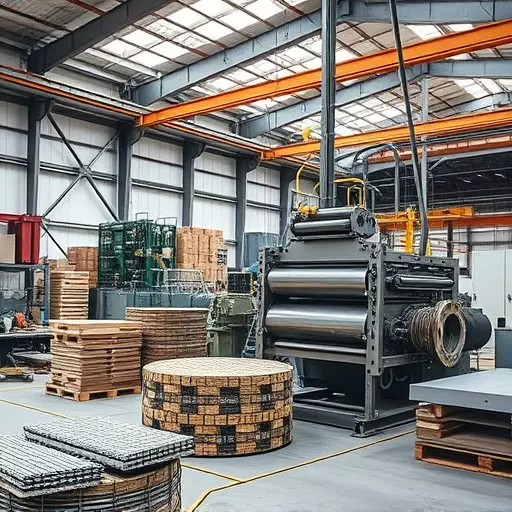
In Toledo and beyond, the adoption of sustainable material processing is revolutionizing traditional production methods. This shift towards eco-friendly manufacturing isn’t just a trend; it’s a crucial step towards fostering a circular economy. By prioritizing sustainable practices, Toledo’s industrial landscape is evolving to minimize environmental impact while maximizing resource efficiency.
Local initiatives focus on innovative techniques that reduce emissions and waste, ensuring materials are reused and recycled. These efforts not only benefit the region’s ecological health but also position Toledo as a leader in green manufacturing. As these practices gain traction, they set a precedent for other industries worldwide, illustrating that eco-conscious production isn’t just possible but also economically viable within a circular economy framework.
Eco-Friendly Manufacturing: Techniques and Benefits for a Circular Economy
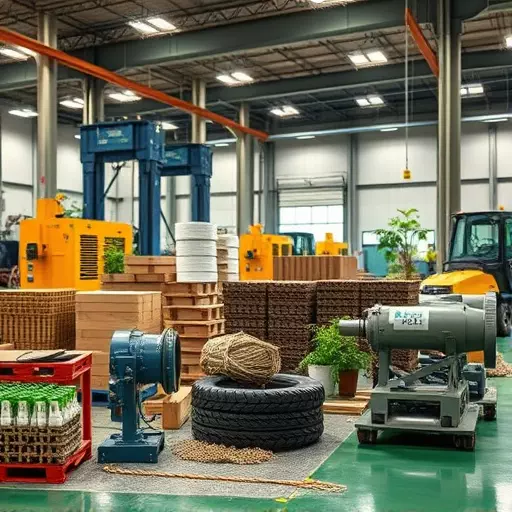
Eco-friendly manufacturing involves utilizing innovative techniques and materials that minimize environmental impact while maximizing resource efficiency. This approach, often centered around sustainable material processing in Toledo and beyond, aims to create products with a reduced carbon footprint at every stage of production. By adopting such methods, manufacturers contribute to the circular economy, where resources are reused and recycled, eliminating waste and preserving natural resources for future generations.
Techniques like upcycling, which transforms discarded materials into new products, and 3D printing using biodegradable plastics are gaining traction. These practices not only lessen pollution but also promote a more sustainable supply chain. Eco-friendly manufacturing benefits include reduced energy consumption, lower greenhouse gas emissions, and the potential to create unique, high-quality goods that appeal to environmentally conscious consumers. This shift towards sustainability is vital for businesses aiming to thrive in a market where eco-consciousness is increasingly important.
Implementing Green Practices: Strategies for Businesses to Adopt Low-Emission Practices

Implementing green practices is a strategic move for businesses aiming to embrace low-emission production methods. One key strategy lies in adopting sustainable material processing techniques, such as using eco-friendly materials and resources that minimize environmental impact. Toledo, known for its manufacturing prowess, has seen significant shifts towards eco-friendly manufacturing, integrating renewable energy sources and innovative technologies to reduce carbon footprints.
Furthermore, embracing the circular economy is pivotal. This involves redesigning production processes to eliminate waste and maximize resource value. Businesses can achieve this by implementing recycling programs, encouraging product longevity through repair and refurbishment services, and fostering a culture of responsible consumption. These practices not only benefit the environment but also offer economic advantages in the long run.
